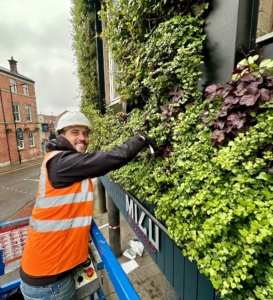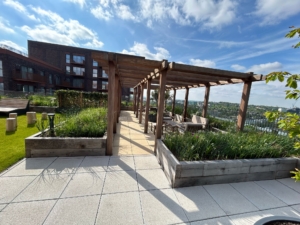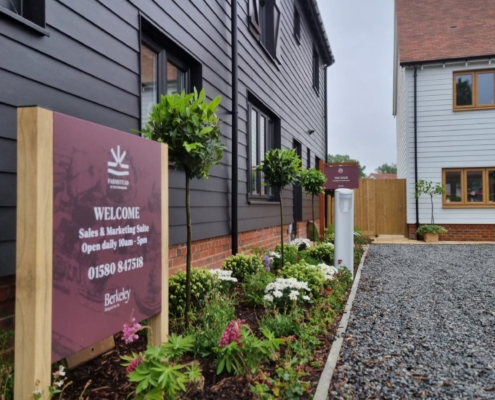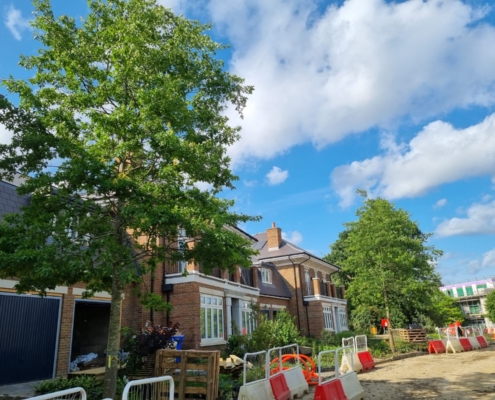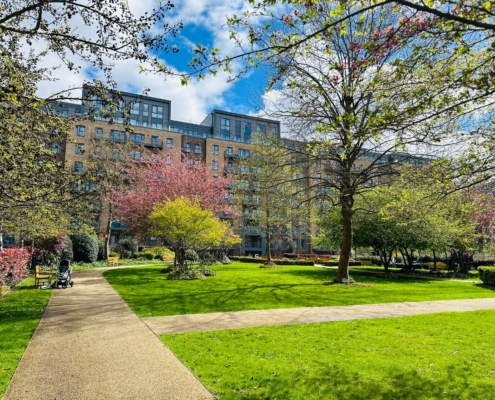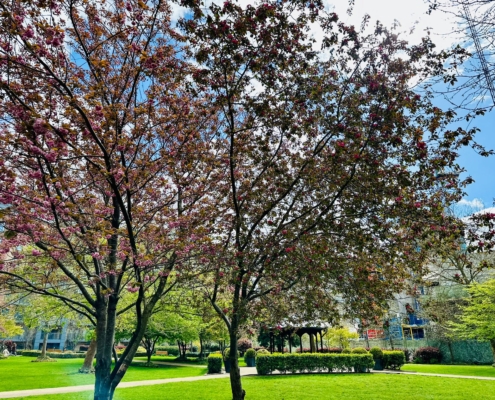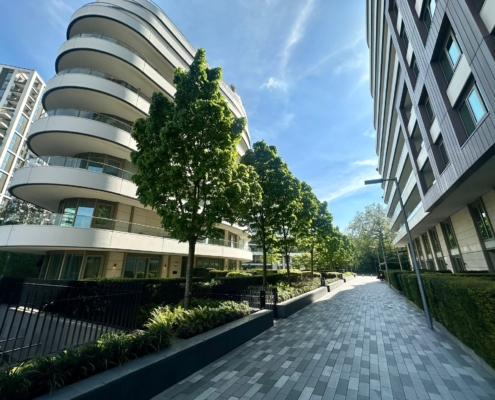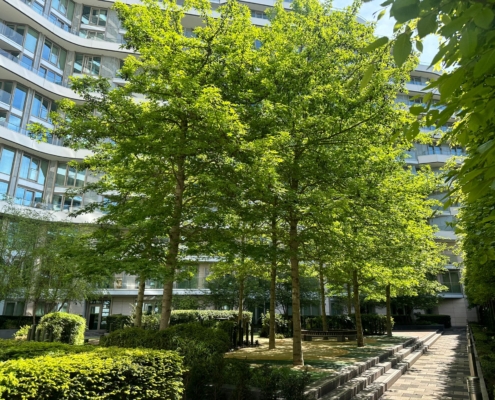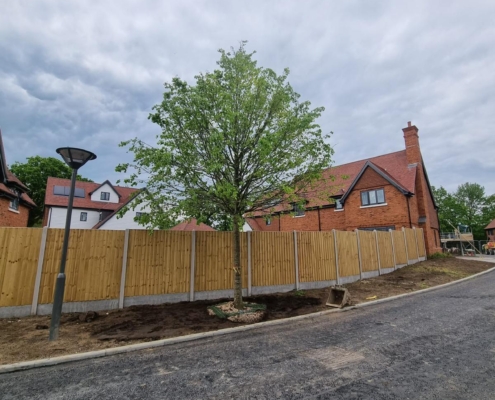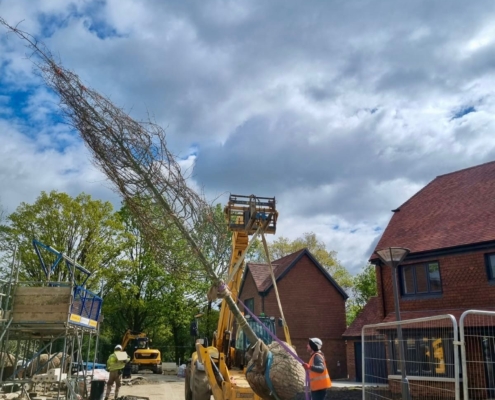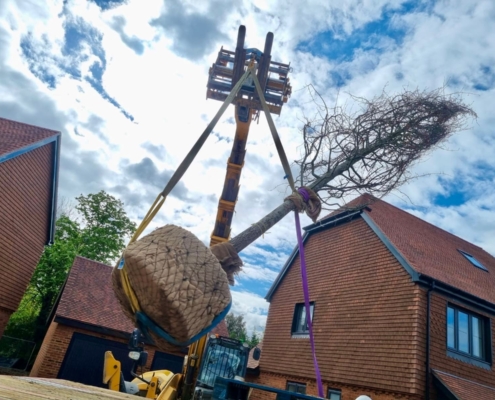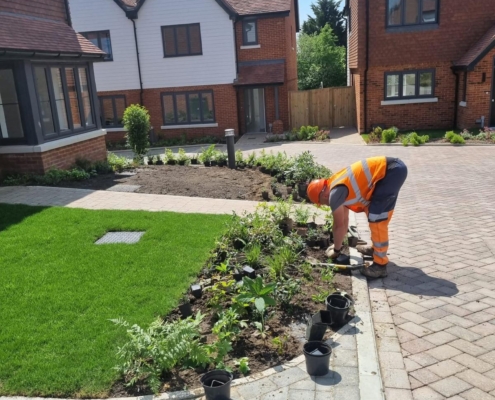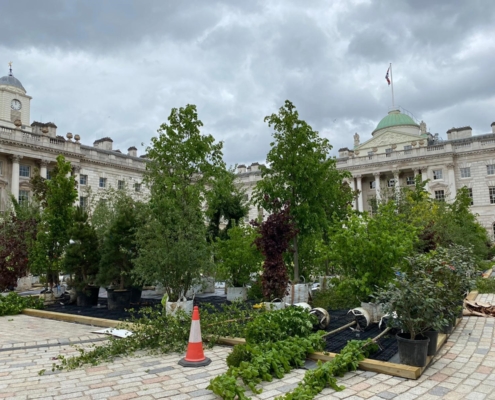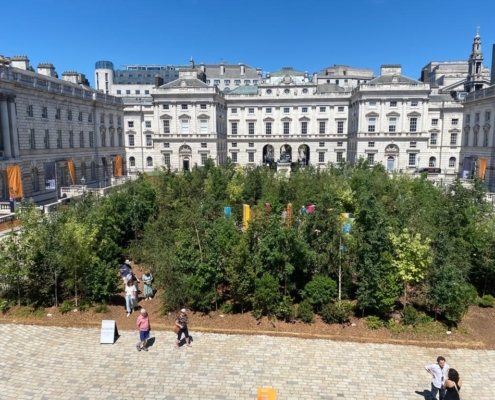Today is World Asthma Day!
Millions of people all over the world suffer from Asthma, which means that most people know someone that suffers from it. Those who have someone with asthma in their lives are typically familiar with the ‘psst psst’ sound of the inhalers that make a relatively normal day-to-day life possible for the ones who use them.
World Asthma Day is dedicated to raising awareness about this pernicious disease. And it also seeks to bring awareness and advanced asthma care to sufferers throughout the world.
Cities are often the worst locations for asthma sufferers due to higher levels of air pollution, which is primarily linked to traffic, industrial activity, and building sites. Additionally, urban environments can expose individuals to more respiratory viruses and higher pollen counts, which can exacerbate asthma symptoms. In London alone it’s estimated that around 600,000 people in have asthma, including almost a quarter of a million children.
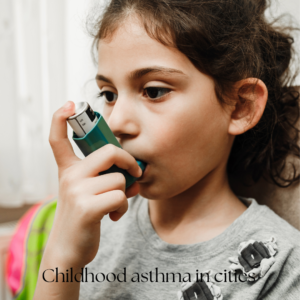
Plants can help asthma sufferers in cities in several important ways, primarily by improving air quality and reducing asthma triggers. Here’s a breakdown of how they help:
1. Filtering Air Pollutants
Plants act like natural air filters:
- Trap particulate matter (PM): Leaves capture dust, pollen, soot, and other fine particles that can irritate lungs.
- Absorb harmful gases: Some plants absorb pollutants like nitrogen dioxide (NO₂), sulphur dioxide (SO₂), and ozone (O₃), all of which are common in urban air and harmful to people with asthma.
- Increase oxygen levels: Through photosynthesis, plants release oxygen, which can improve overall air quality.
- Moderate humidity: Some indoor plants add moisture to the air, reducing dryness that can trigger asthma symptoms—especially in heated or air-conditioned buildings.
2. Cooling Urban Areas (Urban Heat Island Effect)
- Urban greenery cools the air through shade and evapotranspiration, reducing heat-related pollution like ground-level ozone, which is a known asthma trigger.
3. Reducing Allergen Sources
- Green spaces can replace allergen-heavy landscapes (e.g. lawns that require fertilizers or weed-heavy areas), helping to manage outdoor allergens.
- However, plant choice matters—some trees and grasses release allergenic pollen. Urban planners can opt for low-allergen species to help asthma sufferers.
4. Supporting Mental Health
Chronic stress can worsen asthma. Being around greenery and nature has been shown to reduce stress and anxiety, which indirectly helps with asthma management.
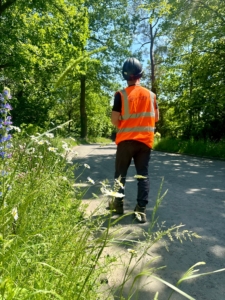
INDOOR PLANTS FOR ASTHMA-FRIENDLY SPACES
These are great plant choices for apartments, offices, or homes they are our go to list for interior plant installations.
| Plant Name | Benefits |
| Spider Plant (Chlorophytum comosum) | Filters carbon monoxide, xylene; very low allergen. |
| Areca Palm (Dypsis lutescens) | Excellent air humidifier and VOC absorber. |
| Snake Plant (Sansevieria trifasciata) | Converts CO₂ to oxygen at night; hardy and low maintenance. |
| Peace Lily (Spathiphyllum) | Absorbs benzene, formaldehyde; helps with humidity. |
| Boston Fern (Nephrolepis exaltata) | Adds moisture, filters air, great for dry environments. |
| Bamboo Palm (Chamaedorea seifrizii) | Removes airborne toxins and increases humidity. |
| Aloe Vera | Cleans formaldehyde and benzene; soothing gel as a bonus. |
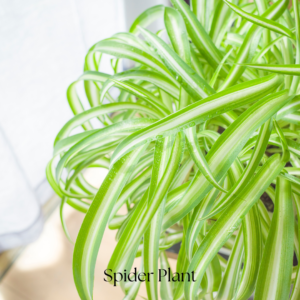
OUTDOOR PLANTS FOR ASTHMA-FRIENDLY URBAN SPACES
| Plant Name | Benefits |
| Magnolia Trees | Beautiful, non-allergenic blooms; good urban tree. |
| Dogwood Trees (Cornus species) | Low pollen output and compact growth. |
| Crape Myrtle (Lagerstroemia indica) | Minimal pollen and adds greenery without triggering allergies. |
| Female Ginkgo Tree (Ginkgo biloba) | Choose female only – they produce no pollen (males do!). |
| Boxwood Shrub (Buxus) | Low pollen; good for hedging and shaping. |
| Hostas | Leafy perennials with very low pollen; shade-loving. |
| Lavender (Lavandula) | Has natural insect-repelling properties; moderate allergen risk—okay in small numbers. |
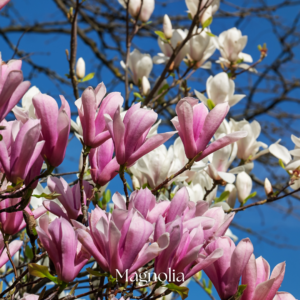
Top 4 Tips for Creating Asthma-Friendly Green Spaces:
Pick female cultivars when possible (male plants produce most pollen).
Rinse plants occasionally to remove dust or pollution build-up.
Use well-draining soil to prevent mould.
Avoid chemical sprays or fertilizers that can emit volatile organic compounds (VOCs).
Which Landscaping solutions help bring plants to polluted cities?
Parks and shared spaces are essential to city pollution management; trees and wisely selected horticultural content can bring a positive impact to urban air. Living Walls, roof gardens and Green Roofs also offer a great solution to the built environment where space is poor, enabling a broad range of planting to be incorporated, dampening the particulate matter in the air that is so damaging for asthma sufferers.
